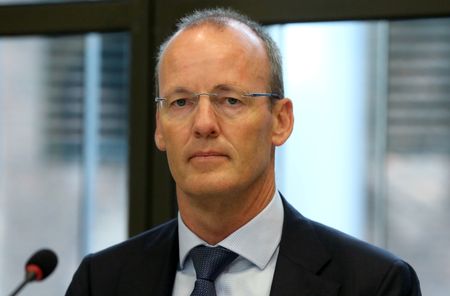By Eric Onstad
LONDON (Reuters) – The EU has chosen PriceWaterhouseCoopers and a Slovak software company to develop a 9 million euro ($9.4 million) joint purchasing platform for critical minerals and energy, according to a European Commission source and a document seen by Reuters.
The platform will have three separate mechanisms for strategic raw materials, hydrogen, and energy products such as natural gas and biomethane, said the source, who declined to be named.
The final details of the platform are still being decided, other EU sources said.
Splitting the platform into three areas follows industry concern about the difficulty of combining the trading of 17 critical minerals, natural gas and hydrogen due to differences in market structure for each commodity.
The bloc wants to pool buying orders to hand participants more leverage to achieve better deals and prices for critical minerals essential for the green transition, which are traded in thin and opaque markets often dominated by China.
The latest developments come as U.S. President Donald Trump said on Monday the European Union should step up U.S. oil and gas imports or face tariffs on the bloc’s exports.
European Commission President Ursula von der Leyen said on Tuesday the EU wants to engage and negotiate with Trump.
PLATFORM TO BE LAUNCHED IN 2025
The Commission has chosen a consortium consisting of PwC EU Services based in Belgium and Slovak software firm Sféra to develop the platform, an EU document seen by Reuters showed.
PwC and Sféra did not immediately respond to requests for comment.
Reuters reported in October that the EU aimed to sign a contract by the end of 2024 after receiving eight proposals from bidders.
The Commission is sticking with plans to launch the first elements of the platform later this year, the source added.
The eight bidders included consulting group Deloitte and a joint proposal from Germany’s Metalshub and Enmacc to use their existing trading platforms for metals and energy for the EU project.
EU officials have been rushing to develop the initiative, a key element in the EU’s Critical Raw Materials Act (CRMA), with a mandate from Commission President Ursula von der Leyen, sources said.
The CRMA, which came into force in May, aims to boost domestic production and processing of critical minerals such as lithium and rare earths that are needed for electric vehicles and wind turbines, while weaning off dependence on China.
GAS SUCCESS?
The new central buying system has been shaped by an existing platform for joint buying of gas, AggregateEU, which was launched during the energy crisis in 2022.
The EU says that has been a success, but a report by the European Court of Auditors questioned the effectiveness of the platform, which brought together buyers and sellers, but left the final contracted deals to individual participants.
“We could not determine its added value in relation to gas trading platforms, nor did we identify a market failure that AggregateEU addresses,” the Auditors report said.
The EU has released no numbers on how much gas has been contracted through the platform and industry sources have said traded volumes were much less than the amount that was matched.
($1 = 0.9585 euros)
(Reporting by Eric Onstad. Additional reporting by Kate Abnett and Julia Payne in Brussels. Editing by Veronica Brown and Mark Potter)












